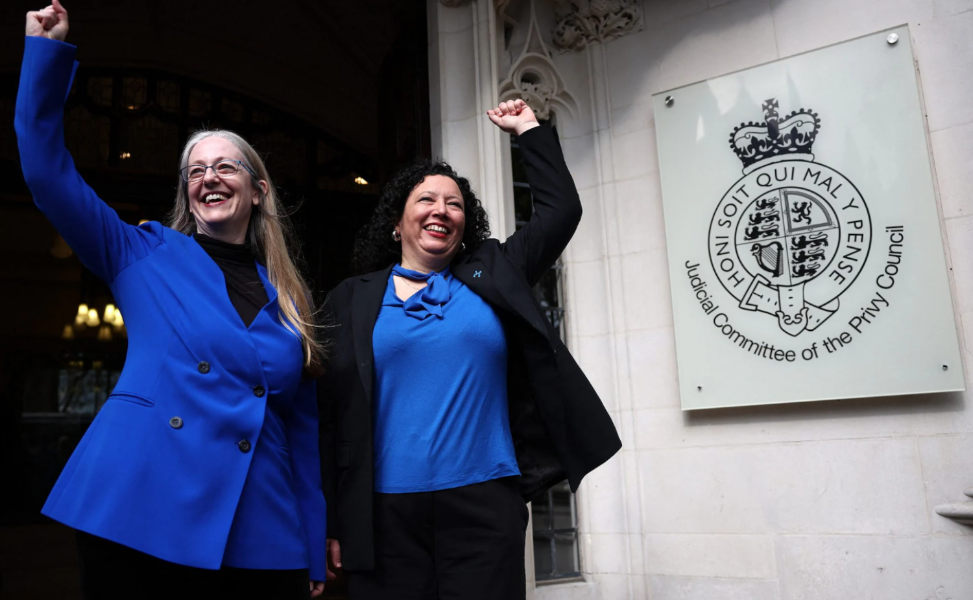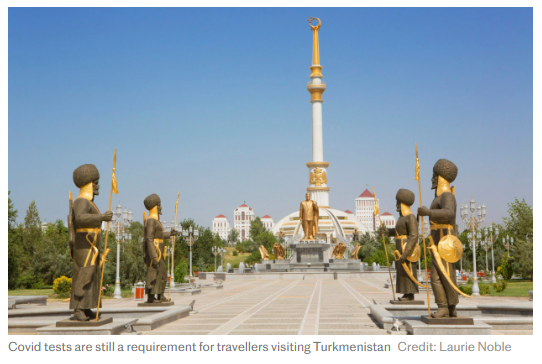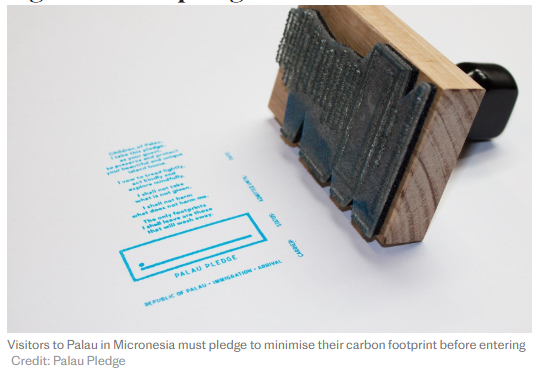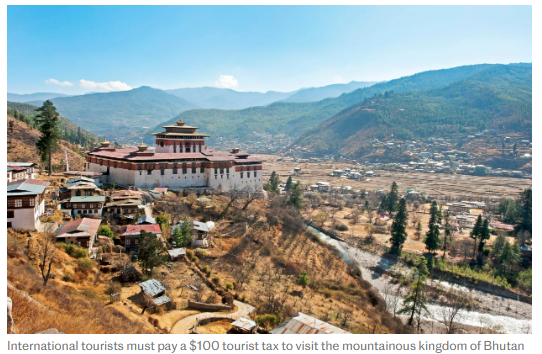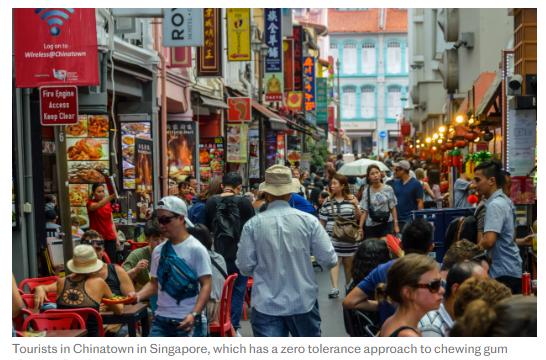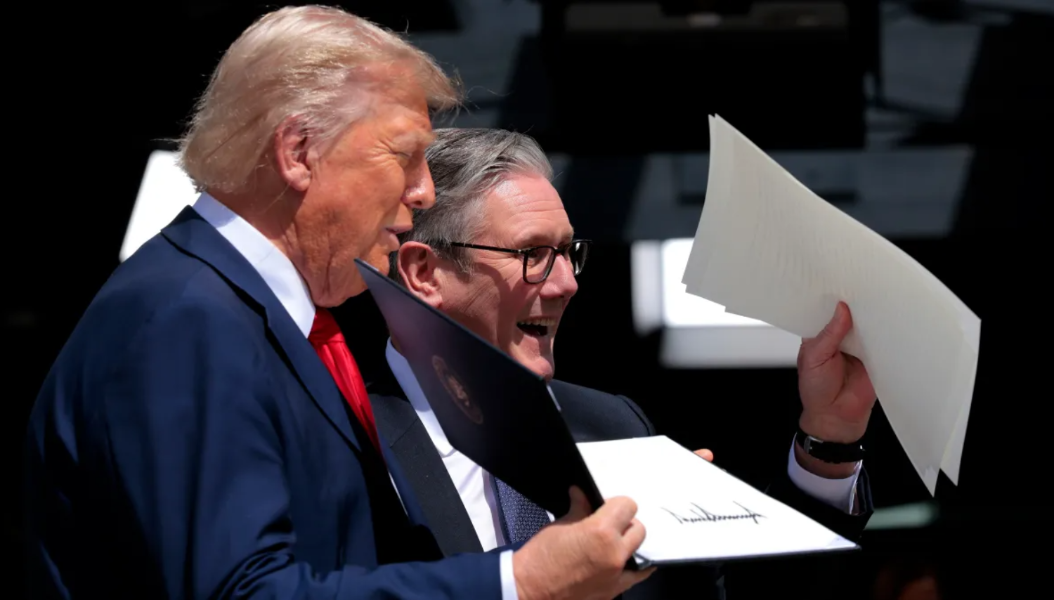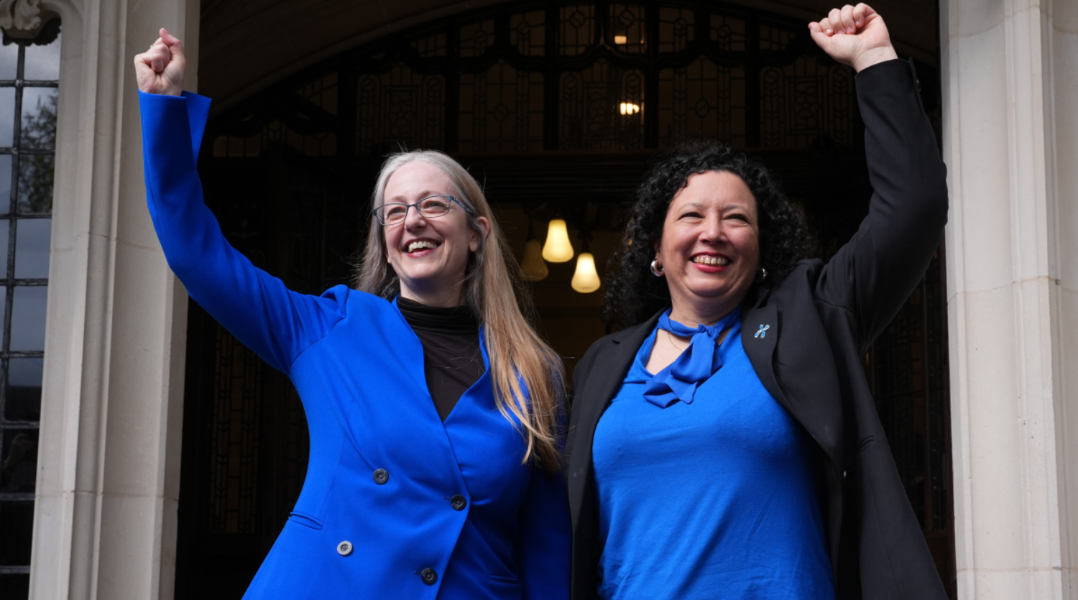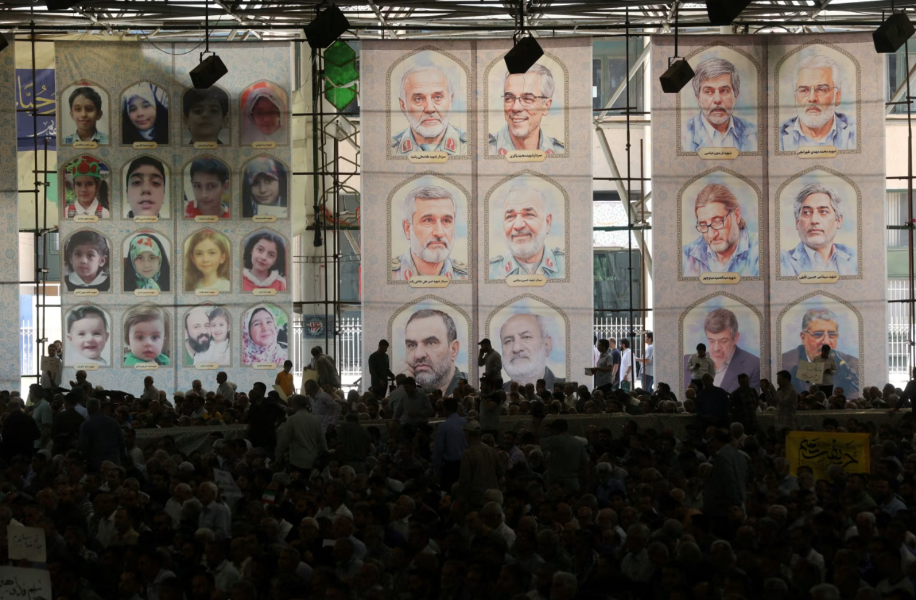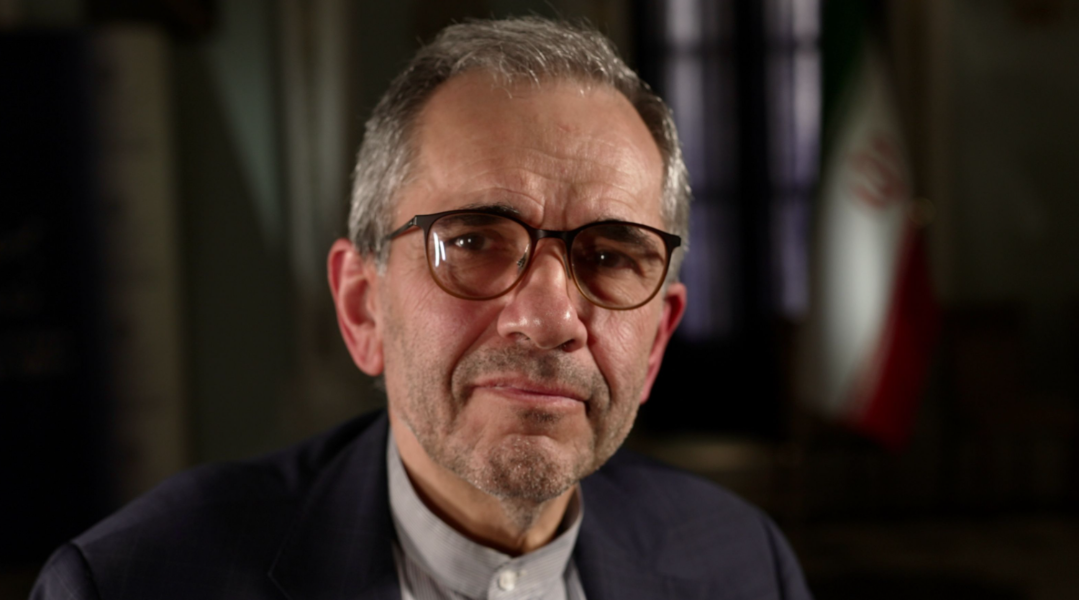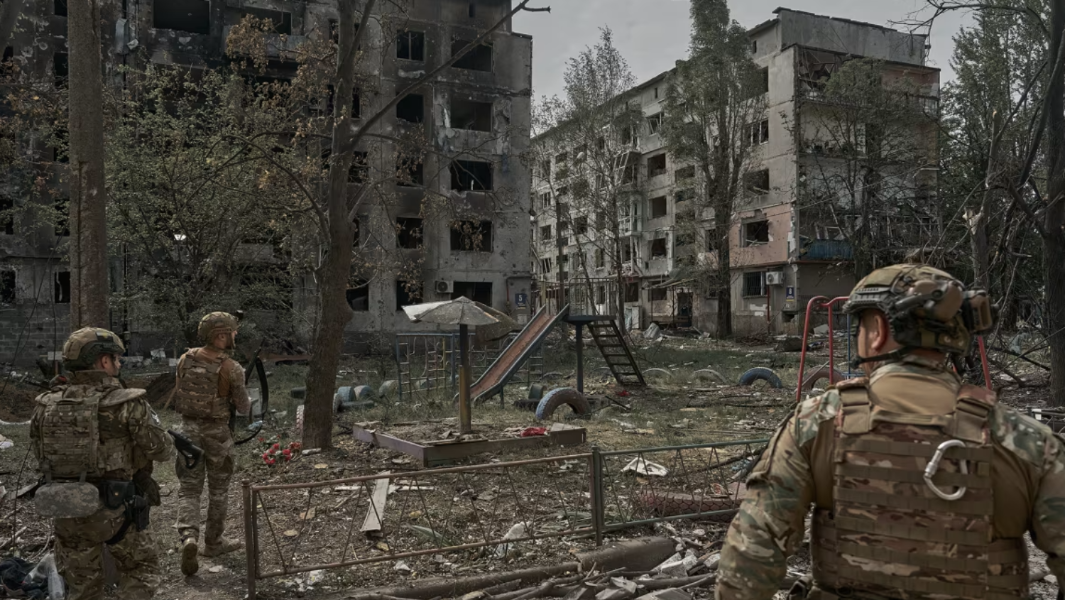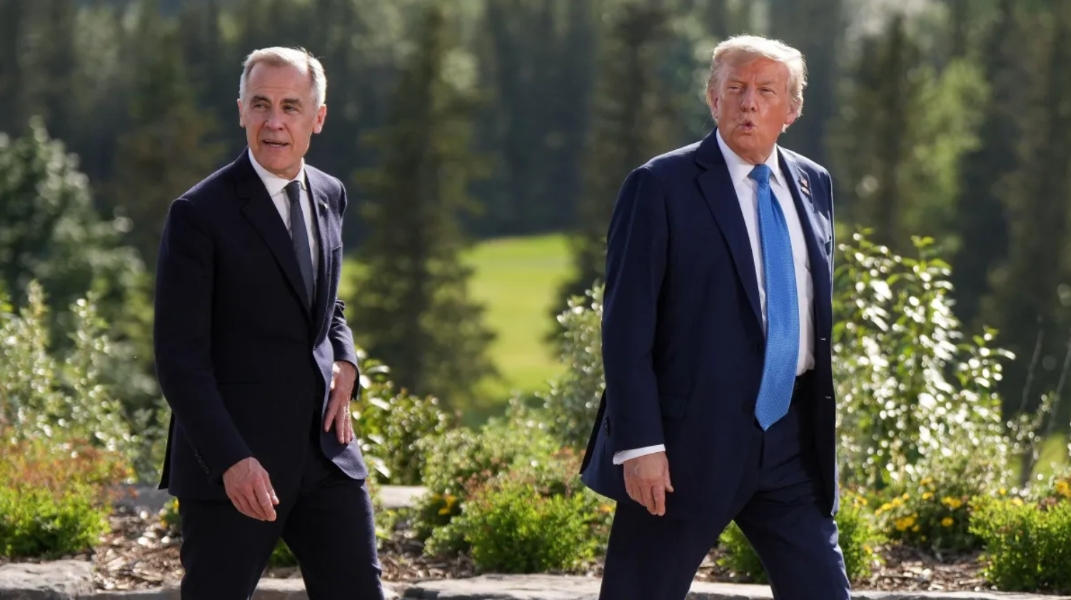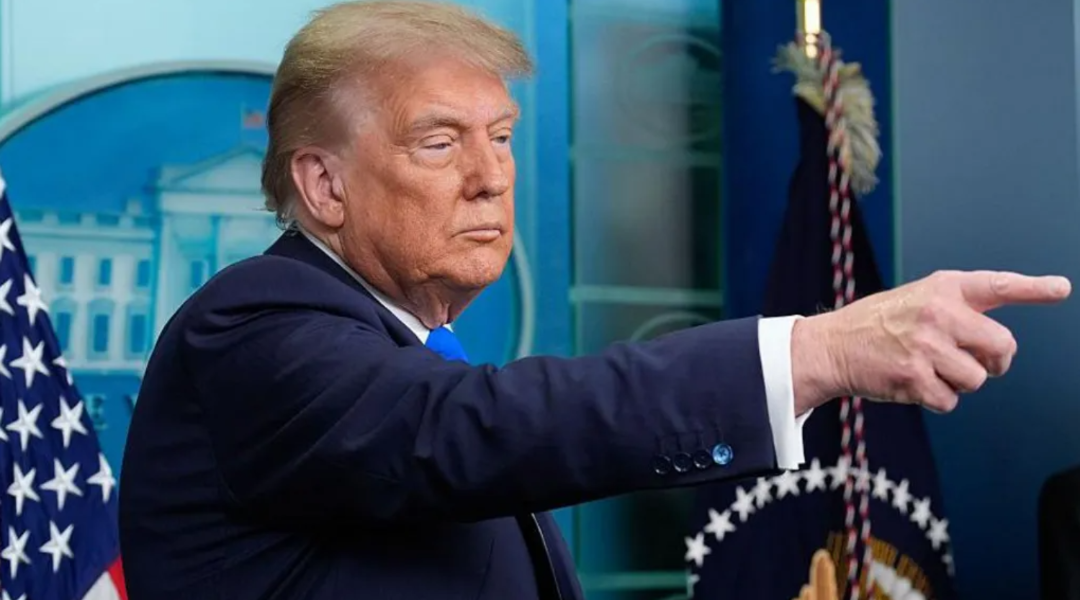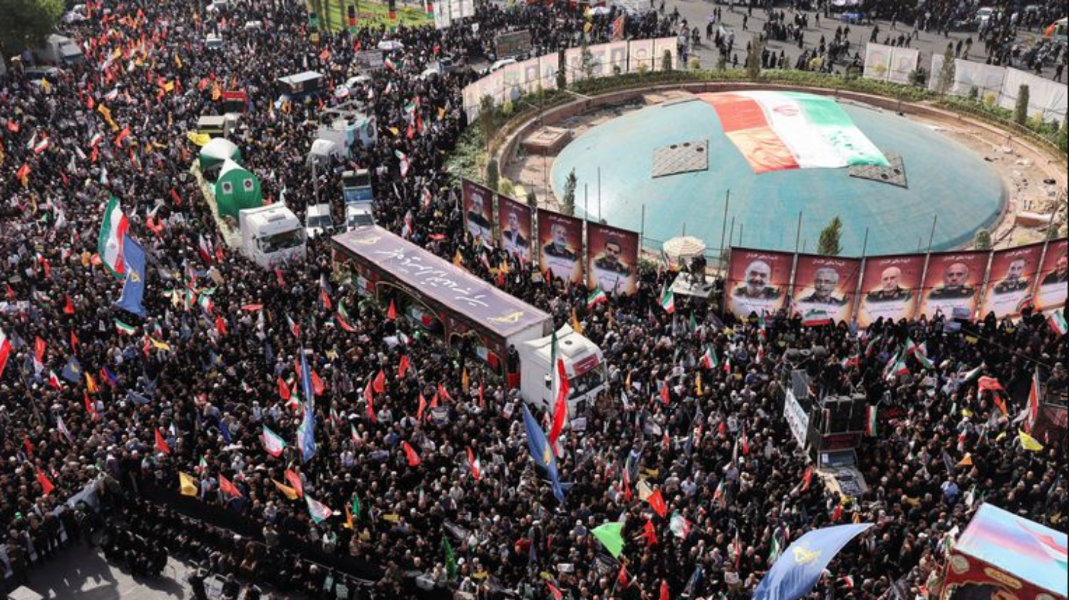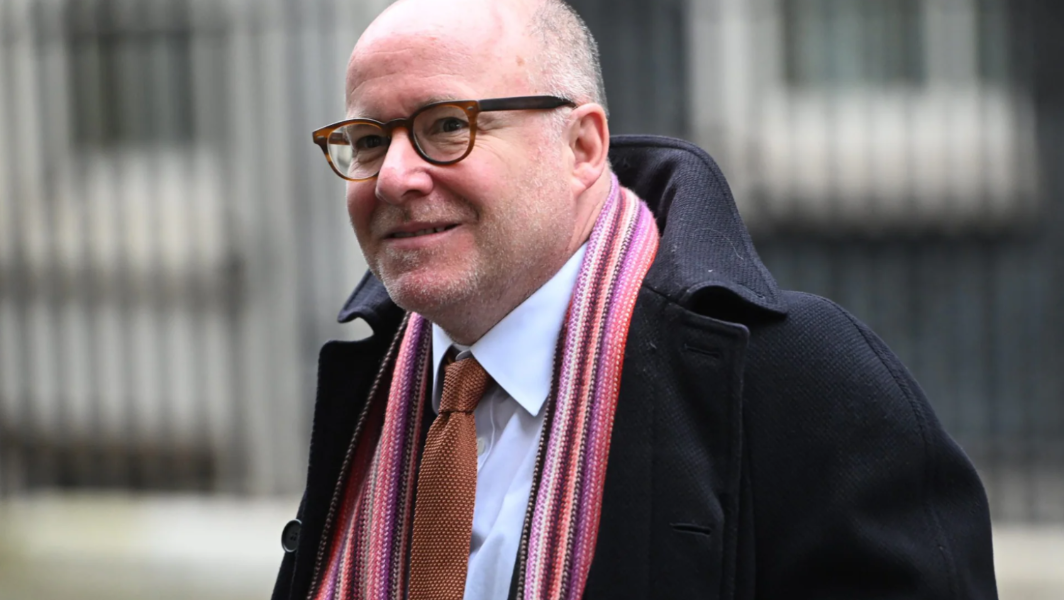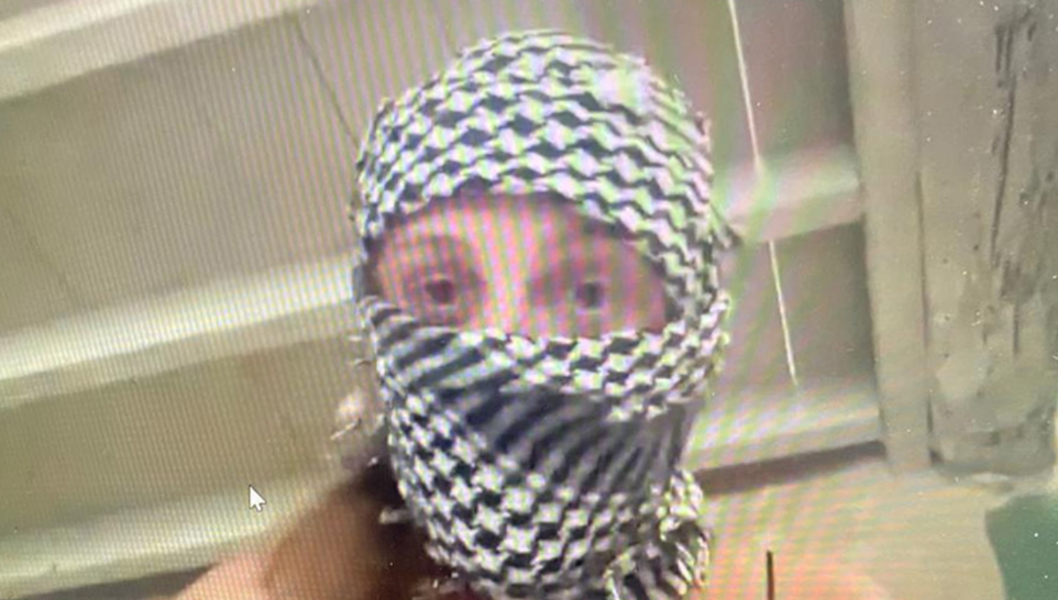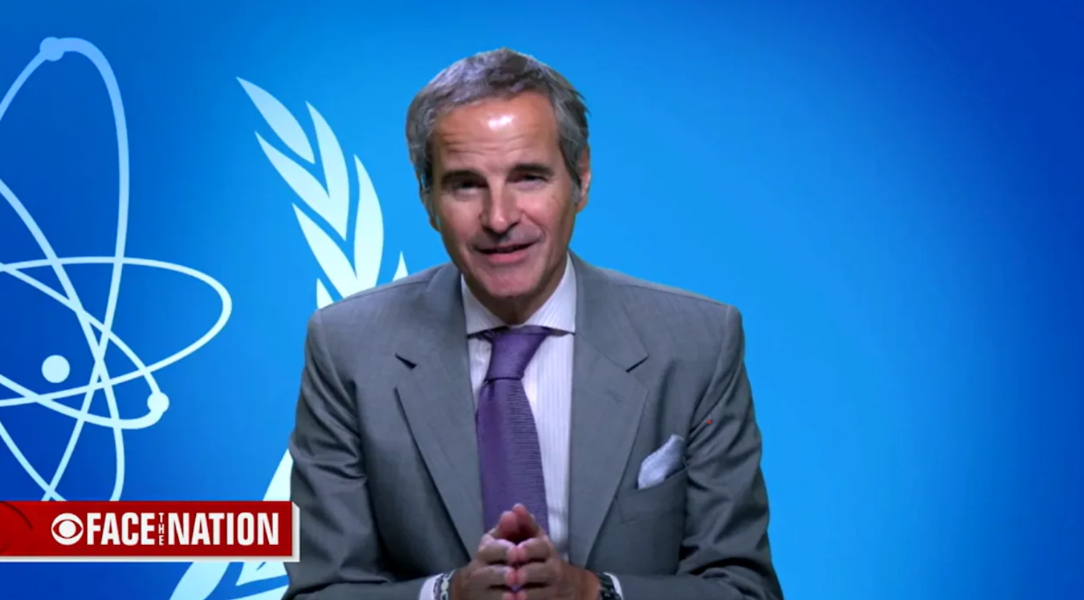-
Posts
10,694 -
Joined
-
Last visited
Content Type
Events
Forums
Downloads
Quizzes
Gallery
Blogs
Everything posted by Social Media
-
Ofcom Says Trans Views Must Still Be Aired Despite Supreme Court Ruling UK broadcasters must continue to give airtime to the belief that trans women are women, regardless of a recent Supreme Court ruling that defined the term "woman" in law as meaning a biological female. In a letter seen by The Telegraph, media regulator Ofcom clarified that the ruling does not settle the wider social and editorial debate surrounding gender identity, nor does it free broadcasters from the obligation to reflect opposing views. The controversy stems from a landmark judgment handed down in April 2025, in which the Supreme Court determined that, under the Equality Act, the legal term “woman” refers specifically to a biological woman. The ruling was hailed by women’s rights campaigners as a definitive legal victory in their efforts to protect female-only spaces. However, Ofcom has now warned GB News—a broadcaster that has publicly aligned itself with the biological definition—that this legal decision does not mean broadcasters can disregard alternative views. “The judgment does not purport to do so,” Ofcom said, responding to GB News’s request for confirmation that the matter was now settled across all contexts. In its letter to the regulator, GB News asked for clarification on whether broadcasters could now treat “woman,” “man,” and “sex” as terms strictly defined by biology, and whether this meant referring to people only by their biological pronouns. The network argued that contributors should generally be free to use such language, provided there was no “deliberate intention to cause harm or offence.” Ofcom, however, rejected what it called GB News’s “dogmatic propositions,” and insisted that the Supreme Court ruling applies only to the specific context of the Equality Act. “We do not consider that it is helpful or appropriate to endorse the dogmatic propositions made by GB News,” the letter stated, explaining that it does not follow that the ruling “effectively ‘settled’ wider debate about the appropriate meaning, usage and effect of such terms in all contexts.” Instead, the regulator reaffirmed its stance that discussions around sex and gender must be approached with editorial balance and a respect for freedom of expression. Broadcasters, it said, retain editorial discretion but must exercise it in line with the Broadcasting Code, which requires due impartiality on controversial issues. “Our assessment will of course also take account of all applicable Convention rights, including the broadcaster’s and audience’s rights to freedom of expression,” the letter continued, stressing that editorial choices on such issues “require nuanced decision-making.” Ofcom drew a comparison to its position on climate change, where it considers the scientific consensus settled and does not require opposing views to be presented. But in the case of gender identity, the regulator said the debate remains open and must be treated accordingly in broadcast coverage. A spokesman for Ofcom reiterated the regulator’s role: “Ofcom is a post-broadcast regulator. In line with the rights of broadcasters and audiences to freedom of expression, our rules allow broadcasters editorial freedom to choose how to cover issues in their programmes subject to the Broadcasting Code.” He added: “Our assessment of whether content complies with the Broadcasting Code is always fact-specific and takes into account all relevant contextual factors, requiring nuanced decision-making, and not a ‘one size fits all’ approach.” GB News has been approached for comment. Adapted by ASEAN Now from The Telegraph 2025-07-01
-
Unusual Borders: The World’s Most Surprising Travel Entry Rules From medical records to pledges for the planet, the modern traveller is increasingly expected to do more than just flash a passport at the border. While some requirements are grounded in security or sustainability, others are so eccentric they seem plucked from fiction. Take Japan, for example—one of the world’s most visited countries. Known for its generally relaxed tourism rules, Japan may soon introduce a peculiar new hurdle: proving you have medical insurance, and no history of unpaid hospital bills, before being allowed to enter. According to reports in Japanese media, Tokyo is considering the policy in response to a rising number of foreign tourists skipping out on medical bills. Despite its historical openness—allowing most Western travellers to obtain visas on arrival—Japan’s government is being urged to tighten controls. While such a move would mean more paperwork for visitors, it wouldn’t be an outlier globally. Across the world, governments are enforcing some truly strange entry requirements—ranging from costly taxes to unexpected declarations. In Turkmenistan, for instance, the pandemic-era ritual of Covid testing has endured beyond the global health crisis. Tourists entering the isolated Central Asian nation must still undergo a Covid test at the border. While most countries have discarded such measures, Turkmenistan charges visitors $31 for the privilege of sticking a swab up their nose. A relic of the pandemic? Perhaps. But in a country known for renaming days of the week on presidential whims, the policy seems to fit right in. Then there's Palau, a tiny island nation in the Pacific with just 18,000 residents. Since 2017, visitors have been required to sign an environmental pledge on arrival, promising to "tread lightly" and reduce their impact during their stay. While critics may question the substance of the gesture, it’s undeniably unique. The pledge is even stamped into visitors’ passports—part declaration, part souvenir. Bhutan, nestled in the Himalayas, has gone a step further with what is arguably the world’s most punishing tourism tax. All visitors (except those from India) must pay a daily $100 “sustainable development fee.” Far from resenting the charge, Bhutan’s Prime Minister Tshering Tobgay claims visitors embrace it. “Most tourists are delighted that they can play a small part – a small meaningful part – in the sustainable development of Bhutan,” he said in a spring interview with a US news outlet. Canada, meanwhile, addresses a more emotional issue. In a world where international parental abductions are a growing concern, Canadian authorities advise that any parent travelling alone with their child carry a signed letter from the other parent authorising the trip. It’s a safeguard meant to prevent custody disputes from crossing borders—but it can also catch well-meaning families off guard. Singapore has long been famous for its ban on chewing gum, but the city-state’s list of prohibited items doesn’t stop there. Travellers may be surprised to learn that Christmas crackers and handcuffs are also on the banned list. Given Singapore’s notoriously strict drug laws, which even cover certain prescription medications, double-checking your luggage is more than just good advice—it’s essential. Finally, there’s North Korea. Most people know that travel to the reclusive country is only possible via heavily monitored guided tours. Yet, oddly, there is one exception. The city of Rason, located within a special economic zone, allows for lighter entry requirements. Travellers must still obtain a Chinese visa and reach the border independently, but Rason remains a rare point of relative openness in one of the world’s most closed-off nations. As travel resumes and global movement becomes more fluid post-pandemic, the fine print at immigration counters is more important than ever. Whether it’s pledging to protect coral reefs, paying $100 a day, or simply remembering to leave your gum at home, crossing borders today can involve far more than just crossing lines on a map. Adapted by ASEAN Now from The Telegraph 2025-07-01
-
Starmer worst start of any new PM, says polling guru Keir Starmer has endured what polling expert Professor Sir John Curtice describes as “the worst start for any newly elected prime minister, Labour or Conservative.” A year into office, the Labour leader finds himself under intense scrutiny, facing sliding poll numbers, policy reversals, and mounting questions about his direction and leadership. Speaking to Times Radio, Curtice was blunt in his assessment. “Voters still don’t know what [Starmer] stands for,” he said. “He must paint a picture of the country he wants to create.” According to Curtice, Starmer's government has witnessed the steepest decline in public support for any newly elected British administration, with Labour currently polling at just 24 percent. Starmer himself admitted to several missteps in a series of interviews reflecting on his first year. In an interview with The Sunday Times, he acknowledged being slow to grasp the intensity of public reaction to his government’s welfare reforms, attributing the lapse to a necessary focus on international affairs. “I take ownership of all my decisions,” he said. He also expressed regret for using the phrase “island of strangers” during a speech on immigration, a term later criticized for echoing Enoch Powell’s notorious rhetoric on race and immigration. “I wouldn’t have gone near it if I had known,” Starmer said. “I didn’t know that was used by Powell. If I’d known that, I would never have said it.” While the prime minister has sought to own up to his mistakes, his leadership has faced renewed questions, particularly after being forced into three policy U-turns in two months. Curtice noted, “Apologies rarely help. U-turns can suggest a lack of direction, which is already one of this government’s biggest problems.” Dissent is also bubbling within Starmer’s party. The Telegraph reported that more than 40 MPs may push to soften policies such as the inheritance tax for farmers and the controversial two-child benefit cap. Despite this, Health Secretary Wes Streeting has come to Starmer’s defense, praising his willingness to admit fault. “I admire a leader who has the courage and humility to admit that he’s not perfect and that his government’s made mistakes,” Streeting told the BBC. “By the prime minister’s own admission, I think there are things that we haven’t got entirely right in government.” Streeting also highlighted Starmer’s international achievements, noting his efforts to “bridge Europe and America to tackle conflict” and his role in brokering trade deals that have “literally saved thousands of jobs.” He added that public service reform and anti-poverty measures were already under way, though he acknowledged the public's skepticism. “Until people start feeling that change I don’t expect the public to give the prime minister, me or anyone else a pat on the back for a job well done.” Speculation around a future leadership contest is simmering, with both Streeting and Deputy Prime Minister Angela Rayner often named as potential successors. Streeting, however, dismissed such talk as “mischief making.” “The fact is that we have got in Keir Starmer a prime minister who is delivering real change in our country,” he told Sky News. Rayner also denied any leadership ambitions. Yet, according to The Mail on Sunday, some of her allies believe she could be the next Labour leader. One ally reportedly said, “I think Angela will be the leader. After next year’s Welsh and local elections, if Starmer does not stand down, he will face a challenge. People have just had enough and Keir is gravely wounded.” Others close to Rayner, however, insist she remains focused on her current government duties. As Starmer enters his second year in office, the pressure is mounting not just to hold the party together, but to define clearly what his leadership means — and where it is headed. Adapted by ASEAN Now from The Times 2025-07-01
-
Starmer Urges Public Bodies to Uphold Supreme Court Ruling on Sex-Based Rights Prime Minister Sir Keir Starmer has called on public institutions to comply with the Supreme Court's recent decision affirming that the legal definition of “woman” in the context of the Equality Act is based on biological sex. Addressing growing concerns over resistance from some public bodies, Starmer insisted that all official guidance must align with the ruling without further delay. “Hospitals and government departments must get on with it,” the prime minister said, referencing institutions that have thus far failed to implement the ruling. Speaking to reporters, Starmer made his position clear: “I accepted the ruling; welcomed the ruling, and everything else flows from that as far as I’m concerned.” He added, “All guidance of whatever kind needs to be consistent with the ruling and we need to get to that position as soon as possible.” The April 2025 Supreme Court decision clarified that references to “woman” in the Equality Act pertain to biological females. The ruling prompted a directive for all UK organisations to review and potentially revise their equality policies accordingly. Despite this, The Times recently reported that several government departments, including within Whitehall, have chosen to delay changes, citing the need for further instruction from the Equality and Human Rights Commission (EHRC). Some human resources teams have told staff that existing trans-inclusive policies will remain in place during the review period. Meanwhile, the EHRC is in the process of drafting updated guidance aimed at assisting organisations in applying the ruling. However, the commission emphasized that the Supreme Court’s decision carries immediate legal weight. “The judgment is effective immediately,” the EHRC said, stressing that any supplementary guidelines should merely serve as tools to aid implementation, not as prerequisites for compliance. Resistance is also evident in the health sector. According to The Times, some hospital administrators have chosen not to revise their internal policies until NHS England offers its own interpretation of the ruling. This has caused frustration among campaigners who view the delay as a dereliction of legal duty. Maya Forstater, chief executive of the campaign group Sex Matters, welcomed the prime minister’s remarks. “This is an important intervention from the prime minister, given the huge number of public bodies failing to implement the Supreme Court judgment and operating outside the law,” she said. “Political leadership is essential if women whose rights are being stolen are not to be forced to turn to the courts, where public bodies will end up losing, at great expense to taxpayers.” Forstater also highlighted the contrast between public and private sector responses. “It’s no coincidence that the private sector has been faster to bring their policies in line with the judgment, recognising what is at stake for the bottom line. Meanwhile most NHS, university and civil service leaders are sitting on their hands.” She rejected the notion that further guidance was needed before compliance. “The law is clear and there is no need to wait for further guidance from the EHRC or anyone else,” Forstater said. “Unlike the small businesses and services for which the regulator’s guidance is intended, public sector organisations have access to specialist legal advice, as well as extra statutory obligations under the public sector equality duty.” As the debate over legal definitions and gender policy continues to divide opinion, Starmer’s unequivocal stance signals a clear expectation: public institutions must now bring their policies in line with the law. Adapted by ASEAN Now from The Times 2025-07-01
-
Locals Decry Chaos Around NYC Opioid Clinic in NoHo In the upscale neighborhood of NoHo, just steps from the Angelika Film Center and multi-million-dollar lofts, residents are witnessing daily scenes they liken to a horror film. Addicts slumped on sidewalks, screaming in parks, and overdosing near playgrounds have become routine, and locals are pointing the finger at a nonprofit opioid treatment clinic they say has invited chaos into their streets. At the center of the storm is Greenwich House, a taxpayer-subsidized nonprofit with a $30 million annual budget and a controversial “harm reduction” philosophy. Critics argue this model — which includes distributing methadone, fentanyl test strips, and overdose-reversing naloxone kits — has turned Mercer Street into an open-air drug den. “Walking on Houston between Mercer and Crosby is an absolute disaster,” said Linda Sondik, a long-time resident. “I have seen people being taken away in ambulances who clearly overdosed, and on the streets people are openly shooting up. It’s tragic and scary.” Each morning by 6 a.m., a line forms outside the clinic — not for a new iPhone, but for doses of methadone. During two visits last week, reporters observed addicts injecting themselves in broad daylight, some in the neck, arms, or legs. They lay curled on sidewalks or collapsed on benches near children’s playgrounds. One young man wandered into traffic on West Houston before medics arrived to treat him, as passersby looked on in shock. The clinic serves around 1,300 individuals and receives approximately $8 million a year in government support. Residents argue it has become a magnet for drug dealers. “Every day, there are at least two or three overdoses, just around this corner,” said Hassane Elbaz, who’s operated a coffee cart nearby for 25 years. “Paramedics save a lot of them. But about every two months, one of them dies.” He pointed out a man in black with a fanny pack. “See this guy – he has a fanny pack full of drugs. He’s the one who sells fentanyl. He killed four people in three days,” Elbaz claimed. Parents like Lilly Migs are alarmed. “The kids will be playing in the playground and there’ll be people screaming and wailing on the other side,” she said. “Parents have called 911 and sometimes paramedics never show up.” She added, “I know the clinic is supposed to be helping people, but I don’t think they’re getting the help they need there. I think it’s unfortunately started to attract a different type of crowd — people that maybe do not want the help that they have to offer.” Greenwich House’s growth has been staggering. From a $15 million budget before the pandemic, it has nearly doubled since 2021, backed by progressive leaders including Council Speaker Adrienne Adams, Manhattan Borough President Mark Levine, and State Senator Brad Hoylman-Sigal. Financial records show large donations from the family of Democratic megadonor George Soros — with his son Jonathan and wife Jennifer giving $50,000 last year. The clinic maintains that its role is misunderstood. “It is a common and unfortunate misconception that the presence of a treatment center causes public disorder. We are not the source; we are part of the response apparatus,” said a spokeswoman. Executive Director Darren Bloch, a former advisor to Mayor Bill de Blasio, joined the organization in 2020 and earned $230,000 in 2022, according to tax filings. The debate over how to address New York’s addiction crisis remains fierce. Advocates for harm reduction argue it keeps people alive until they are ready to seek treatment, while critics say it enables dependency without accountability. “The idea is that people should only seek treatment when they’re ready,” said Charles Fane Lehmann of the Manhattan Institute. “But most people addicted to drugs are addicted for their whole lives. They often regard efforts to get people into treatment… as actively hostile to the interests of people who use drugs.” Despite efforts to curb overdoses, the numbers continue to climb. In 2023, about 2,300 New Yorkers died from drug overdoses — nearly triple the toll from a decade ago. Fentanyl and synthetic opioids were responsible for the majority, accounting for around 1,650 of those deaths. Adapted by ASEAN Now from NYP 2025-07-01
-
Shadow War: How Israel Crippled Iran’s Nuclear Brain Trust In a string of precisely coordinated attacks, Israel has dealt a major blow to Iran’s nuclear weapons program, targeting the scientists behind its most sensitive work. In what was internally dubbed “Operation Narnia,” Israeli operatives launched a pre-dawn assault on June 13 that killed nine top Iranian nuclear scientists in near-simultaneous strikes. The victims were long-time veterans of Tehran’s secret nuclear program, and the aim, according to sources familiar with the operation, was to eliminate them before they could disappear underground. The attacks culminated a 15-year Israeli campaign to erode Iran’s nuclear capabilities by surgically removing its most valuable human assets—scientists with decades of technical experience. Just eleven days later, hours before a U.S. and Qatar-brokered ceasefire came into effect, another strike in northern Iran killed Sayyed Seddighi Saber, a scientist who had been sanctioned by the U.S. weeks earlier for nuclear weapons-related activities. Israeli Prime Minister Benjamin Netanyahu has claimed these killings have set Iran’s nuclear program back by years. While assessments of the physical damage to nuclear infrastructure are ongoing, experts and former officials agree that eliminating this caliber of talent—those with hands-on knowledge of warhead components like detonation systems and neutron triggers—has a more immediate and profound effect. “It’s one thing to lose that expertise slowly over time,” said Eric Brewer, former U.S. national security director for counterproliferation. “But if you’re in the middle of trying to build a bomb or if you see that as a potential near-term option, then it’s going to have a bigger impact.” Although Iran insists its nuclear ambitions are peaceful, the United Nations’ atomic agency has confirmed that Iran maintained a weapons-related program, the AMAD project, until 2003. Since then, Western intelligence believes Iran’s nuclear weapons development has continued in fragmented form, largely through computer modeling and research designed to appear conventional. In the wake of the June 13 attacks, Israel also deployed a drone to kill another unnamed scientist in Tehran, supposedly hidden in a secure location. Israel additionally claimed responsibility for striking the headquarters of SPND—the AMAD project’s successor. These were the first direct killings of Iranian nuclear scientists since 2020, when Mohsen Fakhrizadeh was assassinated using a remote-controlled weapon. Between 2010 and 2020, five other scientists were killed under circumstances widely attributed to Israel, though never officially acknowledged. Among those reportedly targeted was Fereydoon Abbasi-Devani, former head of Iran’s Atomic Energy Organization and a central figure in Iran’s nuclear weapons efforts. “If they tell me to build a bomb, I will build it,” he declared recently on Iranian television. Abbasi-Devani survived an assassination attempt in 2010. Another target was Mohammad Mehdi Teranchi, a U.S.-sanctioned scientist who led high explosives research under Fakhrizadeh and later taught at Tehran’s Shahid Beheshti University—a hub for nuclear talent. Sayyed Seddighi Saber, the final known victim, headed the Shahid Karimi Group, a unit under SPND responsible for explosives research. “Seddighi Saber is linked to projects including research and testing applicable to the development of nuclear explosive devices,” the U.S. Treasury Department said in its May 12 sanctions. Andrea Stricker of the Foundation for Defense of Democracies said Israel’s campaign had removed the “brain trust” of Iran’s nuclear program. “It dealt a blow to Iran’s ability to draw on people who have past and possibly ongoing experience in constructing specific components of nuclear weapons.” Yet others caution that Iran has invested heavily in preserving and transferring this knowledge. It has developed a distributed, resilient network of universities and institutions—including Shahid Beheshti, Sharif University of Technology, and Malek Ashtar University—where senior scientists mentor younger protégés. Israeli security analyst Ronen Solomon noted that two scientists killed on June 13, Ahmadreza Zolfaghari and Abdulhamid Minouchehr, had just published advanced modeling work on neutron sources—a key part of triggering nuclear chain reactions. “There are the professors, and they are teaching the younger scientists… to enter the heart of the Iranian nuclear program,” Solomon said. While Israel’s strikes may have decapitated the current leadership of Iran’s weapons program, the infrastructure to train replacements appears intact. Whether that next generation can fully replace what was lost remains an open and critical question. Related Topics: Iran Acknowledges Major Damage to Nuclear Facilities Amid Strained Diplomacy IAEA Chief Confirms Devastating Blow to Iranian Nuclear Facility Following U.S. Strike After the Bombing: IAEA Chief Calls for Urgent Diplomacy with Iran Amid Nuclear Uncertainty Adapted by ASEAN Now from WSJ 2025-07-01
-
Iran Demands End to US Strikes Before Nuclear Talks Can Resume Iran will not return to diplomatic negotiations with the United States unless Washington commits to halting further military strikes, the country’s deputy foreign minister Majid Takht-Ravanchi has told the BBC. His comments follow a period of escalating conflict between Iran, Israel, and the US, which included American airstrikes on three of Iran’s nuclear facilities. Takht-Ravanchi said the Trump administration had sent messages through intermediaries expressing a desire to resume talks, but had failed to clarify whether it would refrain from further attacks during any negotiation process. “Right now we are seeking an answer to this question: are we going to see a repetition of an act of aggression while we are engaging in dialogue?” he asked. “What they are going to offer us in order to make the necessary confidence required for such a dialogue” remained unclear, he said. The situation deteriorated rapidly after Israel launched a surprise military operation on June 13, targeting Iranian nuclear and military sites and assassinating key figures. The attack derailed a planned sixth round of mostly indirect talks that were scheduled for Muscat two days later. In response, Iran fired missiles at Israel, and hostilities continued for 12 days, during which the United States bombed Iran’s Fordo, Natanz, and Isfahan nuclear sites. The deputy minister reaffirmed Iran’s right to enrich uranium, insisting the programme was for peaceful research purposes. “We have been denied access to nuclear material,” he said, “so needed to rely on ourselves.” He added, “The level of that can be discussed, the capacity can be discussed, but to say that you should not have enrichment, you should have zero enrichment, and if you do not agree, we will bomb you — that is the law of the jungle.” Tensions between Iran and the IAEA have also worsened. Iran’s parliament voted to suspend cooperation with the agency, accusing it of siding with Israel and the United States. Takht-Ravanchi said Iran had no reason to consider altering its nuclear programme in exchange for sanctions relief or investment. “Why should we agree to such a proposal?” he asked. He reiterated that uranium enrichment to 60% was for non-military purposes. Under the 2015 nuclear agreement, Iran was restricted to enrichment levels of 3.67% and prohibited from conducting any enrichment at its Fordo plant for 15 years. But after Trump withdrew from the deal in 2018, citing its failure to block Iran’s path to a nuclear weapon, Iran began violating its terms. By 2021, Iran had resumed enrichment at Fordo and, according to the IAEA, accumulated enough 60%-enriched uranium to potentially construct nine nuclear bombs. He also said the US had conveyed, again via intermediaries, that it was not attempting to carry out regime change in Iran by targeting Supreme Leader Ayatollah Ali Khamenei. While Israeli Prime Minister Benjamin Netanyahu had called for Iranians to overthrow the clerical regime, Trump has recently denied supporting such an outcome. Takht-Ravanchi dismissed the idea, calling it “a futile exercise,” and warned that foreign aggression would only unite the Iranian people, despite domestic criticism of the government. He concluded by saying the ceasefire with Israel remained fragile but would be respected “as long as there is no military attack against us.” Gulf Arab nations, especially Qatar, have reportedly played an active role in facilitating the ceasefire. “We do not want war,” he said. “We want to engage in dialogue and diplomacy, but we have to be prepared, we have to be cautious, not to be surprised again.” Adapted by ASEAN Now from BBC 2025-07-01
-
- 1
-

-
Please discuss in topic already running here
-
The same posts to the same assessments keep being posted. The latest assessment from Rafael Grossi IAEA was already posted when it came out and is running here along with his previous assessment. Please continue there. After the Bombing: IAEA Chief Calls for Urgent Diplomacy with Iran Amid Nuclear Uncertainty
-
Russia Presses Toward Pokrovsk with 110,000 Troops Amid Stalemate, Kyiv Warns Russia has concentrated a formidable force of 110,000 troops near the eastern Ukrainian city of Pokrovsk, according to Ukraine’s top military commander, as Moscow continues its drawn-out campaign to seize full control of the Donetsk region. General Oleksandr Syrskyi, Ukraine’s military chief, described Pokrovsk as the “hottest spot” along the 1,200-kilometre front line stretching across eastern Ukraine. Despite a year of continuous offensives, Russian forces have yet to break through and claim the city. “The enemy’s capture of Pokrovsk, announced back in September 2024, has not yet taken place, thanks in part to our Kursk operation,” Syrskyi said. Pokrovsk holds strategic significance for both sides in the war. Though not a major urban center, its location on a key supply road and rail line makes it critical for logistics and military coordination. Before Russia launched its full-scale invasion in February 2022, Pokrovsk had a population of approximately 60,000. Most residents have since fled, particularly after Ukraine’s last functioning coking coal mine in the city was shut down earlier this year. Its closure prompted even more departures, as the workers who had remained to keep the mine running also left. Russian President Vladimir Putin has repeatedly stated that a primary objective of the war is to fully capture the Donetsk and Luhansk regions, where Russian forces already hold significant territory. Kyiv and Western allies believe Moscow is intentionally dragging out negotiations in an attempt to seize more land through military force. “[The Russians] want to do this not only to achieve some operational results, but primarily for demonstrative purposes,” Syrskyi said. “To achieve a psychological effect: to put the infamous ‘foot of the Russian soldier’ there, plant a flag and trumpet another pseudo-‘victory.’” According to the U.S.-based Institute for the Study of War (ISW), Ukraine’s resistance in Pokrovsk has forced Moscow to revise its original strategy. A planned frontal assault on the city was abandoned in favor of a gradual encirclement from the south and northeast. The ISW attributed this shift to the increasing effectiveness of Ukrainian drone warfare, noting that Kyiv’s forces have integrated drone operators directly with infantry units to strengthen their defensive posture. While Russian troops possess numerical and equipment advantages, they have faced logistical limits in increasing their presence around Pokrovsk. One factor cited was Ukraine’s surprise cross-border incursion into Russia’s southern Kursk region, which temporarily diverted some 63,000 Russian troops and 7,000 North Korean fighters away from eastern Ukraine. “This allowed us to weaken the enemy’s pressure on the main fronts and regroup our troops,” Syrskyi explained. In their latest analysis, ISW reported that Russian assaults continue in the region, often executed by small fireteams—sometimes only one or two soldiers—using unconventional vehicles such as motorcycles, buggies, and all-terrain vehicles. These tactics suggest a shift toward more mobile, flexible attacks in an attempt to find vulnerabilities in Ukraine’s layered defenses. Despite mounting pressure, Pokrovsk remains under Ukrainian control, a symbol of resistance in a grinding conflict where victories are measured in meters rather than miles. Whether Russia can maintain its current level of troop concentration, or Ukraine can continue to hold out amid a prolonged war of attrition, remains uncertain. Adapted by ASEAN Now from CNN 2025-06-30
-
Trump Halts Trade Talks with Canada Over Digital Tax, Threatens New Tariffs President Donald Trump has abruptly ended all ongoing trade negotiations with Canada, lashing out at the country’s newly implemented digital services tax, which he labeled “egregious” and “a direct and blatant attack on our Country.” The decision was announced via Trump’s Truth Social platform and sent shockwaves through global markets and diplomatic circles. The U.S. president accused Canada of mimicking the European Union in targeting American tech companies, stating, “They are obviously copying the European Union, which has done the same thing, and is currently under discussion with us, also.” The tax, which was passed by the Canadian government last year and is set to be collected starting Monday, applies retroactively to 2022 and targets major U.S. firms such as Amazon, Google, Microsoft, and Meta. “Based on this egregious Tax, we are hereby terminating ALL discussions on Trade with Canada, effective immediately,” Trump declared. “We will let Canada know the Tariff that they will be paying to do business with the United States of America within the next seven day period. Thank you for your attention to this matter!” The Canadian government, led by Prime Minister Mark Carney, has acknowledged the U.S. announcement but has yet to issue a formal response. Carney’s office told CNN that officials are currently reviewing the situation. The fallout is expected to be significant, as Canada remains one of America’s most crucial economic partners, with two-way goods trade totaling $762 billion last year. The timing of Trump’s decision is particularly dramatic, as both nations had been working toward finalizing a renewed trade agreement by mid-July. That effort followed a tit-for-tat tariff exchange earlier in the year, sparked by disputes over dairy and other agricultural products. Trump reiterated his long-standing frustrations on this front, calling Canada “a very difficult country” to do business with and referencing tariffs on American dairy exports. The markets reacted swiftly and negatively to the news. The S&P 500 and Nasdaq, which had both touched record highs earlier in the day, plummeted following Trump’s statement. The uncertainty surrounding potential U.S. tariffs on Canadian goods has rattled investors already concerned about global trade tensions. Canadian officials have consistently defended the digital services tax, arguing that multinational tech giants should pay their fair share for revenue earned within Canada. Earlier this month, they reaffirmed that the tax would not be withdrawn, even under mounting pressure from Washington. The tax has become politically sensitive, especially after Trump’s previous inflammatory suggestion that the U.S. might annex Canada and make it America’s 51st state—an outlandish claim that outraged Canadians and played a role in Mark Carney’s rise to power. Trump’s abrupt move marks a major disruption in one of the world’s most integrated trade relationships. As Canadian firms prepare for a potential wave of tariffs, and American tech giants brace for millions in retroactive tax bills, the coming days may determine whether this rift deepens or a new diplomatic channel opens to prevent further escalation. Adapted by ASEAN Now from The Times 2025-06-30
-
Trump Rides High on Series of Major Victories, Despite Tax Bill Turbulence President Donald Trump wrapped up a dramatic and politically charged week with a string of victories that energized his base and reshaped headlines at home and abroad. What began with an angry, profanity-laced rant on the White House lawn over ceasefire concerns in the Middle East ended with a confident Trump hosting back-to-back press conferences, celebrating what he described as a “tremendous” run of success. Among the high points was a U.S. military strike on Iranian nuclear facilities, which Trump labeled “unbelievable.” The bombing campaign, launched on June 21, was followed days later by what the president called a “complete and total” ceasefire in what he dubbed the “12-day war” between Israel and Iran. Despite initial instability—including a ballistic missile attack from Iran on a U.S. base in Qatar and immediate violations of the ceasefire agreement—Trump claimed personal credit for bringing about calm, saying he had to “narrowly” persuade Israeli Prime Minister Benjamin Netanyahu to halt further military action. The success of the strike, paired with the fragile truce, allowed Trump to declare himself a “peacemaker,” bolstering his diplomatic credentials at a time when conflicts in Gaza and Ukraine remain unresolved. On the international stage, Trump also found affirmation at the NATO summit in the Netherlands. The mood shifted from formal diplomacy to personal camaraderie when NATO Secretary General Mark Rutte jokingly referred to Trump as “Daddy,” a term linked to his role in brokering the Middle East ceasefire. Trump embraced the nickname with glee, telling reporters, “I think he likes me. If he doesn’t... I’ll come back and hit him hard.” Secretary of State Marco Rubio, standing nearby, struggled to contain his laughter. The White House quickly capitalized on the moment, posting videos captioned “daddy’s home” that portrayed Trump as the commanding figure of international affairs. Another major boost came from the U.S. Supreme Court, which issued a ruling that curtailed the power of federal judges to impose nationwide injunctions on executive orders. The case centered around Trump’s effort to revoke birthright citizenship from children of certain immigrants, but the implications were broad. Attorney General Pam Bondi hailed the decision as a victory against the “endless barrage” of legal challenges stalling the president’s agenda. Trump celebrated at an impromptu press conference, calling the ruling a “monumental victory for the constitution, the separation of powers, and the rule of law.” The court’s decision is expected to pave the way for controversial policies previously blocked by lower courts, including cutting funds to “sanctuary cities,” halting refugee resettlement, and ending taxpayer support for gender-affirming surgeries. “This was a tremendous win, and we’ve had tremendous wins,” Trump declared. “But this was a tremendous win today.” Trump capped the week with a diplomatic meeting at the White House where the foreign ministers of Rwanda and the Democratic Republic of Congo signed a peace agreement to end decades of conflict. Though details of the deal remain unclear and skepticism lingers given past failures, Trump called it a “generational victory” and noted that the agreement would give the U.S. access to valuable mineral rights in the region. “I was able to get them together and sell it,” he said. “And not only that, we’re getting for the United States a lot of the mineral rights from the Congo.” However, not all went according to plan. Trump’s top legislative ambition—a sweeping tax reform package he’s dubbed the “One, Big, Beautiful Bill”—hit procedural snags when Senate Parliamentarian Elizabeth MacDonough ruled that key provisions violated Senate rules. Billions in proposed cuts now hang in the balance. Press Secretary Karoline Leavitt tried to downplay the setback, saying, “This is part of the process... But the president is adamant about seeing this bill on his desk here at the White House by Independence Day.” Despite the hiccup, Trump ended the week smiling, basking in applause and headlines that, for once, seemed to align with his ambitions. Adapted by ASEAN Now from BBC 2025-06-30
-
ChatGPT Blocks Iranian Influence Campaign Exploiting Scottish Independence Debate A covert Iranian influence operation using artificial intelligence to stoke division in the UK and US has been disrupted by OpenAI. The company behind ChatGPT confirmed that it had cut off access to its tools for a network of propagandists operating under the alias "Storm-2035," which had been generating persuasive political posts in English and Spanish using prompts written in Persian. According to OpenAI’s June threat report, the Storm-2035 network was likely controlled by Iranian operatives posing as ordinary citizens from the UK, US, Ireland, and Venezuela. These accounts sought to inflame already contentious political issues, with a particular focus on Scottish independence and Irish unification. The campaign aimed to deepen divisions by aligning these causes with support for the Iranian regime, raising concerns about foreign manipulation of Western political discourse. The crackdown came amid claims that a sudden disappearance of pro-independence social media accounts followed Israeli strikes on Tehran earlier this month. During a heated exchange in the Scottish Parliament, Conservative MSP Murdo Fraser challenged SNP cabinet secretary Angus Robertson about the potential foreign backing of the independence movement. “Are you concerned that your central policy objective is being actively backed by the terrorist state of Iran, as part of its campaign to weaken this United Kingdom?” Fraser asked. Robertson responded sharply, cautioning against political smearing. “Fraser should be very careful about seeking to smear people in this country who believe that this country should be a sovereign state,” he said. Despite the OpenAI intervention, some fake accounts linked to the Storm-2035 operation remain active. These accounts continue to promote pro-independence messages while praising the Iranian government. One such post, from a user with a stereotypical Scottish name and a generic avatar, declared: “The Iranian people triumphed through unity and resilience against two nuclear superpowers. Why shouldn’t we follow their example to win our independence from the British monarchy?” Cybersecurity experts have long warned that state-sponsored disinformation networks often focus on wedge issues to attract followers and later introduce unrelated political narratives. The sudden appearance of pro-Tehran content among Scottish nationalist accounts, which rarely express interest in Middle Eastern geopolitics, appears to be an effort to blend unrelated ideologies for propaganda purposes. The Storm-2035 campaign did not restrict itself to Scotland. OpenAI’s investigation found that the network also pushed narratives supporting Irish unity, Palestinian statehood, and Latino rights in the US, while echoing Iranian propaganda. These accounts typically displayed suspicious behavior, including following hundreds of users while having few followers, and using profile pictures lifted from websites like Pinterest — often showing young women with their faces obscured by phones. In its report, OpenAI stated: “The threat actor was prompting ChatGPT in Persian and generating batches of short comments in English and Spanish. The short comments were then posted on X by a series of likely inauthentic accounts that posed as residents of the target countries.” It noted the growing difficulty of distinguishing real from fake users online, particularly when large language models like ChatGPT are exploited to create content that sounds convincingly native. By blocking Storm-2035’s access, OpenAI hopes to reduce the spread of this type of AI-assisted disinformation. While artificial intelligence can help users communicate across languages and cultures, its misuse by hostile states remains a growing challenge for tech firms, governments, and civil society alike. Adapted by ASEAN Now from The Times 2025-06-30
-
Tehran Erupts in Grief and Defiance at Funeral for Fallen Commanders and Scientists Thousands of Iranians flooded the streets of Tehran in a powerful and emotionally charged funeral procession for senior military commanders and nuclear scientists killed during the country’s 12-day conflict with Israel. Amid a wave of national mourning, loud chants of “death to America” and “death to Israel” echoed across the capital as coffins were paraded through the streets on trucks decorated with rose petals, photographs, and Iranian flags. The funeral convoy moved through Tehran to Azadi Square, carrying the remains of high-ranking officials, including General Hossein Salami, commander of the Revolutionary Guard, and General Amir Ali Hajizadeh, the head of the Guard’s ballistic missile program. Iranian state media confirmed that at least 16 nuclear scientists and 10 senior commanders were among the dead. Iranian President Masoud Pezeshkian attended the procession along with other notable figures, including Ali Shamkhani, a senior adviser to the Supreme Leader who was seriously wounded during the fighting. While the Supreme Leader himself was not seen in state broadcasts of the funeral, the President offered a heartfelt tribute to the massive turnout. "From the bottom of my heart, I thank you dear people," President Pezeshkian wrote on social media. "With love, you bid farewell to the martyrs of our homeland, and our voice of unity reached the ears of the world." The mass funeral served not only as a national farewell to prominent figures but also as a defiant statement of resilience. Iranian Foreign Minister Abbas Araghchi acknowledged the emotional toll of the conflict and the loss of life, calling the deaths “hard and painful.” He appeared to reference the devastating Israeli airstrikes that preceded the ceasefire. “Institution and structures, however important and valuable, return with new glory and greater strength over time, even if it takes years,” Araghchi said, striking a tone of long-term resistance and recovery. The nearly two-week war with Israel inflicted heavy casualties on both sides. Iran’s health ministry reported 610 deaths, including 13 children and 49 women. On the Israeli side, their health ministry stated that 28 people were killed and 3,238 injured during Iranian attacks. Israel has claimed responsibility for the deaths of approximately 30 Iranian commanders and 11 nuclear scientists during the course of its military operations, figures that align with the names honored during the public funeral. While the ceasefire has temporarily halted hostilities, the scale and symbolism of the funeral make clear that tensions remain deeply rooted and unresolved. For many Iranians, the procession was not only about honoring the dead, but also sending a message of defiance, unity, and enduring resistance on the world stage. Adapted by ASEAN Now from Sky News 2025-06-30
-
Norwegian Royal Scandal: Crown Princess’s Son Charged with Rape and Assault Amid Growing Allegations Marius Borg Høiby, the eldest son of Norway’s Crown Princess Mette-Marit, has been charged with multiple counts of rape and sexual assault in what authorities have described as a case involving a “double-digit number” of alleged victims. The 28-year-old, who is also the stepson of Crown Prince Haakon, now finds himself at the center of a serious and highly publicized investigation shaking Norway’s royal family. The charges, announced Friday by Oslo police, include one count of rape involving intercourse, two counts of rape without intercourse, four cases of sexual assault, and two instances of bodily harm. “I cannot go into further detail about the number of victims in the case beyond confirming that it is a double-digit number,” said Oslo Police Attorney Andreas Kruszewski. The royal, once affectionately dubbed “Little Marius,” has been arrested several times throughout 2024 as more individuals have come forward with accusations. According to authorities, the case against Høiby has been built not only on interviews but also on electronic evidence, including text messages. Despite cooperating with the investigation during questioning, Høiby “doesn’t acknowledge any wrongdoing in most of the cases – especially the cases regarding sexual abuse and violence,” his defense attorney stated. For now, Høiby remains free pending a potential trial. The Norwegian royal palace has declined to comment, telling the national newswire NTB that the case will proceed according to “normal procedures.” Though not in the direct line of succession and holding no official royal title, Marius Borg Høiby has long lived under public scrutiny due to his family ties. He is the son of Mette-Marit from a previous relationship and grew up within the royal household alongside Princess Ingrid Alexandra and Prince Sverre Magnus. His defense lawyer noted that while Høiby no longer resides in the royal home, he continues to live in close proximity. Høiby’s personal history has also come under renewed examination. He has previously spoken openly about his struggles with substance abuse, particularly cocaine addiction. His biological father, Morten Borg, has a criminal past, including time served for drug and violent offenses. The case marks an extraordinary chapter for Norway’s royal family, which has largely avoided scandal in recent decades. The gravity and scale of the charges have sparked widespread public and media attention, not only because of Høiby’s royal connections but also due to the serious nature of the allegations and the number of individuals reportedly involved. As investigations continue and the judicial process unfolds, Norway awaits further developments in a case that could have long-lasting ramifications for both its legal system and its royal institution. Adapted by ASEAN Now from NYP 2025-06-30
-
Lord Hermer, the Attorney General, has once again landed himself in hot water with a deeply out-of-touch response to concerns about unequal treatment under the British justice system. Speaking to the BBC this week, Hermer dismissed the notion of “two-tier justice”—the belief that ethnic minorities are treated more favourably than the white working class—as “frankly disgusting” and “offensive” to police, prosecutors, and courts. According to him, politicians “need to get behind” the justice system rather than “seek to undermine it.” Such a sweeping dismissal only serves to reinforce the public’s belief that their legitimate concerns are being ignored. The perception of unfairness has grown especially strong since the government’s heavy-handed response to last summer’s Southport unrest. Hermer appears blind to the widespread anger and frustration over what many see as stark disparities in how the state handles civil unrest depending on the community involved. In defending the apparent inconsistency, Hermer attempted to draw a distinction between the Southport unrest, where officers were attacked, and London’s Gaza marches, which he claimed were “not producing violence” despite being “awash with anti-Semitism.” But his argument completely misses the point. No one is suggesting violent offenders should escape justice. The real issue lies in how the state appears far more aggressive in confronting unrest in white working-class areas than in others. Just weeks before Southport erupted, the streets of Harehills, Leeds, saw a police car overturned and a bus set ablaze. Rather than confront the violence, officers reportedly retreated. And while Southport saw swift and aggressive policing, other groups appeared to operate with near impunity. In Birmingham on August 5, armed Muslim mobs took to the streets, ostensibly to “protect their communities.” The result? A pub was attacked, and a man outside suffered a lacerated liver. Yet these incidents did not trigger the same zero-tolerance approach. What has most inflamed public outrage, however, is the crackdown on online speech. One of the most notable cases is that of Lucy Connolly, who was sentenced to 31 months in prison for a single, nasty tweet posted on the night of the Southport murders—a message she deleted soon after. As revealed by the Telegraph, Lord Hermer personally approved her prosecution for stirring up racial hatred, even though he had the constitutional authority to withhold consent. At the same time, he declined to review lenient sentences for grooming gang members, raising questions about his priorities. Former Attorney General Suella Braverman has stated that she would not have brought the charge against Connolly. “We don’t have a two-tiered justice system,” Hermer insisted. “We have an independent justice system.” But that claim rings hollow to many. Prime Ministerial hopeful Sir Keir Starmer himself politicised the matter by branding those involved in the Southport unrest as “far-Right thugs” from outside the area. Arrest data and a recent report from the police inspectorate have since cast doubt on that assertion. Hermer and other officials also targeted online speech, asserting that it had played a central role in inciting the violence. “You cannot hide behind your keyboard,” Hermer declared. Yet many locals were already enraged by the brutal murders of three children, without any prompting from social media. For Connolly, the state’s heavy-handedness continues. She has been denied temporary release to care for her daughter and her ailing husband—privileges that even convicted murderers have received. “Their intention was always to hammer me,” she told the Telegraph earlier this year. She now alleges cruel treatment behind bars. If Lord Hermer truly believes it's “disgusting” to view such treatment as unfair, he is dangerously out of touch. The public is not convinced by blanket denials of injustice. In fact, as awareness of cases like Connolly’s grows, so does the belief that the system is rigged. A recent YouGov poll shows public confidence in the judiciary at an all-time low, with a four percent rise in those expressing “no confidence at all” since last June. Dismissing these concerns will only deepen the divide. Adapted by ASEAN Now from The Telegraph 2025-06-30
-
Just a day after Home Secretary Yvette Cooper announced plans to proscribe Palestine Action as a terrorist group, the organisation launched its latest online training session — a “crash course in direct action” — on Zoom. Hosted by a masked activist wrapped in a keffiyeh, the two-and-a-half-hour session brought together a dozen new recruits and one undercover journalist from The Times, all eager to learn how to take part in the group’s campaign of sabotage against companies allegedly complicit in Israel’s military actions. “This is a critical moment in every sense,” the host declared. She admitted that the group was “flummoxed” by the looming terror designation and acknowledged tensions were high. Still, she insisted the campaign of vandalism and criminal damage would “continue as normal.” The training revealed an organisation both highly secretive and brazenly committed to causing significant financial harm — with £5,000 of damage encouraged as a minimum threshold. “We hope you’ll be causing damage of over £5,000,” she told attendees. The more serious the charges, the greater the praise: “My favourite case of all time” involved a lone activist who caused £500,000 of damage at the Arconic aerospace factory in Birmingham — and was acquitted. Legal risks were downplayed. “Don’t be put off” by the potential ten-year sentences, the host said. She claimed most serious charges were often dropped or diluted by prosecutors and pointed to recent jury acquittals of activists accused of criminal damage, including the so-called “Leicester two.” In her view, “the public is on our side.” Even prison time was reframed as a badge of honour. “The resistance continues right the way through to the trial. If you end up in prison, on remand, you can take the resistance into prisons,” the host explained, quoting one jailed member who said, “I am bringing the intifada into the prison.” Nineteen Palestine Action activists are currently incarcerated and referred to as “political prisoners” by the group. Francesca Nadin, one of those celebrated for serving time, told Glastonbury Festival attendees that “everyone who goes to prison becomes more radicalised,” insisting it was “not the end of the world.” Concerns about the personal consequences of activism — criminal records, visa issues, mental health — were acknowledged but ultimately brushed aside. One activist said a conviction had not harmed her career working with vulnerable people, and in fact had improved her job prospects. “As soon as I’ve told them why it is that I’ve got a conviction, they’re like, ‘Please come work for us more,’” she said. Throughout the session, the host stressed the belief that Palestine Action members are morally right. “We are literally the people that are upholding international law,” she said. “We’re not guilty and that’s why we plead not guilty.” Legal advice was informal and offered without liability, with attendees advised to exploit legal aid or crowdfund. One example cited was a book smuggled into prison titled How to Blow Up a Pipeline, which promotes militant climate activism. Beyond its militant messaging, the group offers what it calls a tight-knit support network. Volunteers wait at police stations to assist released members, help recover their property, and attend court hearings. “It’s a really beautiful community,” said the host. “They wave flags, show support, and knit you little Palestine flag hearts.” Financially, Palestine Action insists it does not pay anyone. It accepts donations via its website and claims all legal costs are covered through online crowdfunding. One campaign to oppose the terror proscription raised £150,000 in just four days. In a statement responding to the government’s decision, the group said: “This is an unhinged reaction to an action spraying paint in protest at the UK government arming Israel’s slaughter of the Palestinian people. It is plainly preposterous to rank us with terrorist groups like Isis, National Action and Boko Haram.” Despite the looming ban, the group remains defiant and increasingly emboldened. Its recent break-in at RAF Brize Norton has been followed by plans to target three other military bases. “We’ve actually seen support go through the roof,” the host claimed, thanking attendees for “putting your finger up against the government who are trying to silence us.” Related Topics: How in Just 5 Years The Corbynista Huda Ammori Steered Palestine Action's Militant Campaign Watch: Activists Claim Damage to RAF Military Aircraft in Protest Against Gaza Operations Sabotage Campaign Targets UK Defence Suppliers in Unrelenting Attacks Activists Vandalize Trump’s Turnberry Golf Course in Pro-Palestinian Protest Pro-Palestinian Students Vandalize Cambridge University's Senate House in Gaza Protest Pro-Palestine Activists Vandalize Barclays and JP Morgan Buildings in Leeds Pro-Palestine Mobs Wreck Barclays Banks Across the UK 7 Activists Face Court Alleged Terrorist-Related Actions at Israeli Defence Firm UK Site Adapted by ASEAN Now from The Times 2025-06-30
-
@frank83628 enough of the conspiracy theory off topic nonsense
-
A number of posts removed. Please ensure when making specific claims you can back the up with a credible source if asked or your posts will be removed. "In factual areas such as news forums and current affairs topics member content that is claimed or portrayed as a fact should be supported by a link to a relevant reputable source."
-
UPDATE: After the Bombing: IAEA Chief Calls for Urgent Diplomacy with Iran Amid Nuclear Uncertainty After the Bombing: IAEA Chief Calls for Urgent Diplomacy with Iran Amid Nuclear Uncertainty In a wide-ranging interview on CBS’s Face the Nation, Rafael Mariano Grossi, Director General of the International Atomic Energy Agency (IAEA), spoke candidly about the severe damage inflicted on Iran’s nuclear infrastructure following U.S. and Israeli strikes—and the urgent need for diplomacy to prevent a deeper crisis. “It’s clear that what happened in particular in Fordo, Natanz, Isfahan… has destroyed to an important degree” Iran’s capabilities in uranium treatment, conversion, and enrichment, Grossi told Margaret Brennan. While some infrastructure remains, he described the setback to Iran’s program as “very serious,” echoing the Iranian foreign minister’s own characterization of the situation. The IAEA, Grossi said, will eventually need to return to Iran—not to assess damage, but to re-establish oversight of nuclear materials and activities. “Our job is… to re-establish the knowledge of the activities that take place there, and the access to the material, which is very, very important.” Diplomatic efforts may pave the way. Grossi confirmed he remains in contact with U.S. envoy Steve Witkoff, backing his push for renewed negotiations. If diplomacy succeeds, he noted, “there could be an agreement on certain restrictions. And of course, who is going to verify that is the IAEA.” Yet cooperation is far from guaranteed. Iran’s parliament recently passed a law aiming to suspend engagement with IAEA inspectors, and the foreign minister said there are no plans to admit Grossi personally into the country. Grossi remains cautiously hopeful. “You cannot invoke an internal law not to abide with an international treaty,” he said, referring to Iran’s obligations under the Non-Proliferation Treaty. “Iran is not saying that at the moment, and I think this is constructive.” Still, significant questions remain unresolved—particularly about Iran’s stockpile of enriched uranium and its potential movement before the strikes. “We presume… that when they announce they are going to be taking protective measures, this could be part of it,” Grossi said. “But, as I said, we don’t know where this material could be.” Pressed on whether Iran could still rush toward developing a nuclear weapon, Grossi urged caution. “We don’t want to be alarmists… but we need to be in a position to ascertain, to confirm what is there, and where is it and what happened.” He emphasized that while some facilities may be destroyed, “the knowledge is there. The industrial capacity is there. Iran is a very sophisticated country in terms of nuclear technology.” Prior to the attacks, the IAEA still had inspectors operating in some Iranian facilities. Satellite images had shown trucks moving near Fordo, suggesting equipment or materials might have been relocated. But Grossi said such protective actions are permissible—if Iran informs the IAEA, which did not happen due to the speed of events. “Now is the time to reconnect and to talk,” he insisted. Responding to accusations from Iranian officials that his reports provoked the attacks, Grossi defended the agency’s neutrality. “Who can believe that this conflict happened because of a report of the IAEA?” he asked. “Maybe it’s easier to criticize an international organization… but it’s not reasonable.” When asked about various intelligence agencies offering conflicting timelines on Iran’s ability to rebuild, Grossi said it depends on what is being referred to and concluded. “There has been severe damage, but it’s not total damage. Iran has the capacities… if they so wish, they will be able to start doing this again.” Iran had a very vast ambitious program, and part of it may still be there, and if not, there is also the self-evident truth that the knowledge is there. They can have, you know, in a matter of months, I would say, a few cascades of centrifuges spinning and producing enriched uranium. Despite the destruction and mistrust, Grossi sees a chance for diplomacy. “This is an opportunity. We do have an opportunity now,” he said. “We have to go back to the table and have a technically sound solution… Otherwise, this will come hit us again.” Adapted by ASEAN Now from CBS 2025-06-29
-
@Chomper Higgot a post making numerous unsubstantiated claims has been removed. 5. You will not use ASEAN NOW to post any material which is knowingly or can be reasonably construed as false, inaccurate, invasive of a person's privacy, or otherwise in violation of any law. Topics or posts deemed to be scaremongering, deliberately misleading or which deliberately distort information will be removed. In factual areas such as news forums and current affairs topics member content that is claimed or portrayed as a fact should be supported by a link to a relevant reputable source.
-
No more links to the previous leaked preliminary report that has since been debunked, there are previous topics on that already. The topics here are: Iran Acknowledges Major Damage to Nuclear Facilities Amid Strained Diplomacy & IAEA Chief Confirms Devastating Blow to Iranian Nuclear Facility Following U.S. Strike



